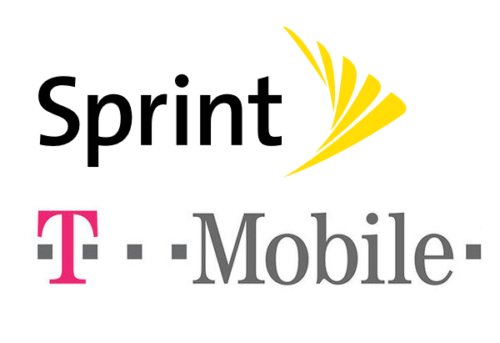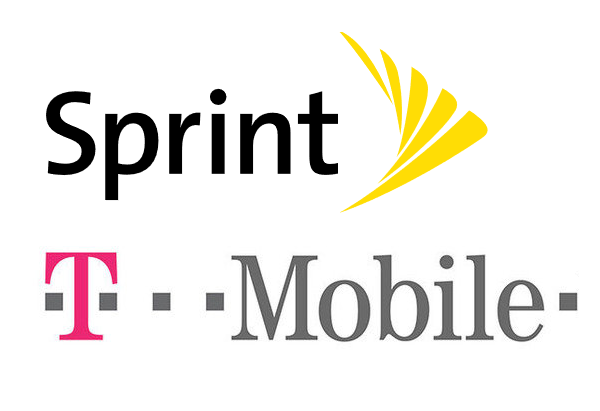
Sprint-T-Mobile will help bring 5G nationwide and transform the U.S. economy forever. By Robert Romano
At the Feb. 13 hearing of the U.S. House Energy and Commerce Subcommittee on Communications and Technology, the proposed merger of T-Mobile U.S., Inc. and Sprint Corporation was considered by members of Congress, with T-Mobile CEO John Legere and Sprint Executive Chairman Marcelo Claure testifying.
By the far the biggest selling point that was offered is how a combined Sprint and T-Mobile will be able to deploy a nationwide 5G network. House Energy and Commerce Committee Chairman Frank Pallone (D-N.J.) stated in his opening remarks that “5G deployment is important and valuable to consumers and the economy and whether the merger expedites 5G roll-out merits consideration.”
By that measure, then, Sprint-T-Mobile is exactly what the U.S. market needs. To get to 5G, the U.S. needs to allocate a whole lot of spectrum. That is why the proposed merger is so important. It will enable T-Mobile and Sprint to share their respective 600 MHz and 2.5 GHz spectrum across the low and medium bands.
As T-Mobile’s Legere noted in his testimony, “T-Mobile possesses low-band (600 MHz) spectrum, which is particularly useful for providing coverage across broad geographic areas, but has limited capacity, and high-band (mmWave) spectrum, which is useful primarily for outdoor applications and in targeted densely populated areas. By contrast, Sprint lacks low and high-band spectrum, but possesses substantial mid-band (2.5 GHz) spectrum, which has more limited coverage capabilities than low-band spectrum, but provides deep network capacity. Combining T-Mobile’s low-band and high-band wireless spectrum with Sprint’s mid-band spectrum will allow for both extremely broad coverage and deep network capacity, providing the optimum scenario for a robust, nationwide 5G network.”
Sprint’s Claure pointed out in his testimony how separately each company on its own won’t be able to effectively compete in 5G: “It is important to understand how our plans for 5G in the absence of a merger will necessarily be limited by our spectrum portfolio, lack of scale, and resource constraints. In particular, our limited low-band spectrum cannot provide a basis for launching a ubiquitous coverage layer for 5G, and building ubiquitous nationwide 5G coverage using only Sprint’s 2.5 GHz spectrum would be impractical and economically infeasible. To be sure, Sprint’s 2.5 GHz spectrum will deliver very high speeds and support substantial capacity where we are able to deploy it, but due to the propagation characteristics of 2.5 GHz spectrum, it would not provide a blanket of coverage outside of major metropolitan and suburban areas.”
Again, it’s all about the spectrum. While T-Mobile’s low band spectrum will help bring the network nationwide and particularly to rural areas, Sprint’s medium spectrum will give it the network capacity it needs to function in big cities and densely populated suburbs. You cannot do nationwide 5G without these shared characteristics. So, if you want 5G, you need access to the entire spectrum.
Meaning, to get to 5G, if we didn’t have Sprint-T-Mobile, we’d have to invent it.
The economic benefits appear obvious enough. Accenture has estimated that 5G will create 3 million new jobs in the U.S. and boost the economy by more than $500 billion. It will mean many new investments made leveraging the network that simply cannot happen right now because they are not achievable without 5G.
In Sept. 2018 FCC Chairman Ajit Pai stated the need for 5G: “U.S. leadership in 5G technology is a national imperative for economic growth and competitiveness.” And here, the merger helps the U.S. compete globally with China, while fostering competition in 5G versus AT&T and Verizon.
Americans for Limited Government President Rick Manning in a letter to the House Energy and Commerce Subcommittee on Communications and Technology emphasized the importance of vigorous market competition to keep the U.S. ahead of China on 5G: “While China races ahead in 5G with its command and control economic approach, threatening U.S. intellectual property, the U.S. has continued to achieve unparalleled innovation over the past century through robust competition. T-Mobile and Sprint joining forces will create more competition in the 5G market versus AT&T-Time Warner and Verizon — helping the U.S. to stay ahead of its foreign adversaries.”
In addition, 5G speeds will promote competition with direct-line broadband. So, if you want to cut the cord, with 5G speeds, you could set up wireless Internet in your house with your cellular plan. Again, that’s a boon for rural areas and will help bring down prices, too. What’s not to like?
Finally, bringing 5G to the U.S. with Sprint-T-Mobile and other carriers will technologically transform everything about the U.S. economy. Smart cities, driverless vehicles, factories with robots and so many other things not yet contrived, all possible because of the next generation of wireless technology. Combining Sprint and T-Mobile’s spectrum is a huge piece of the 5G puzzle, helping to bring about a future of endless possibilities for the American people. This is one example of consolidation in the marketplace that regulators should embrace.
Robert Romano is the Vice President of Public Policy at Americans for Limited Government.
